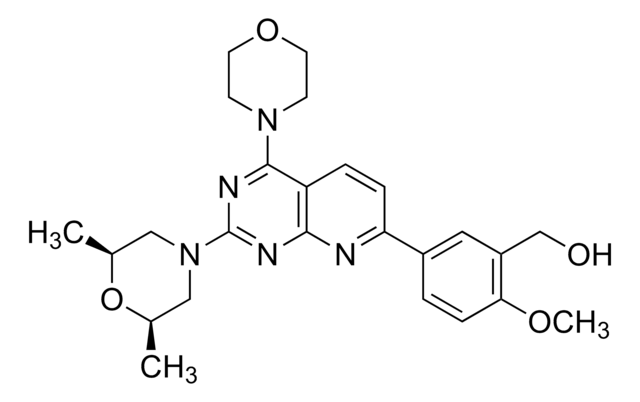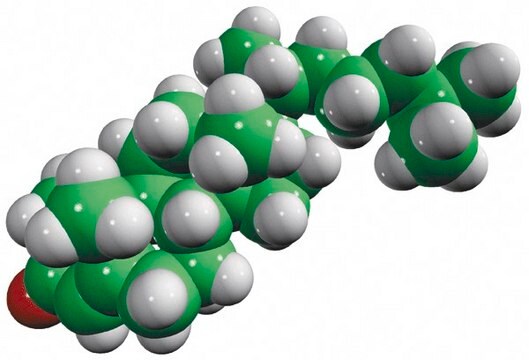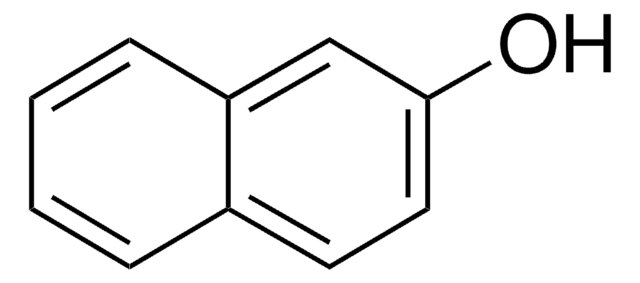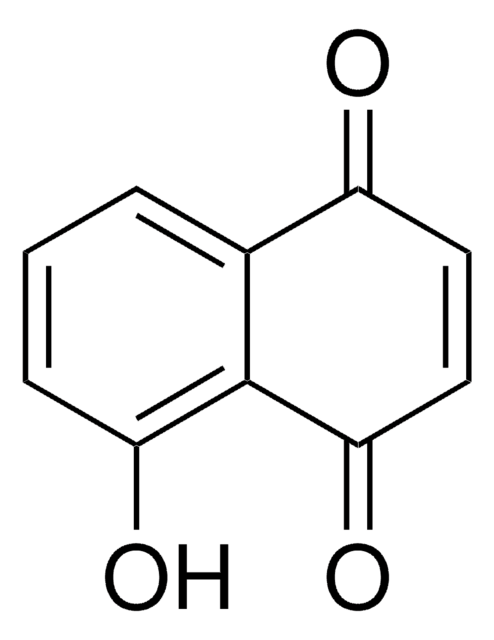C0993
CGP 57380
≥98% (HPLC)
Synonym(s):
CGP57380, N3-(4-fluorophenyl)-1h-pyrazolo[3,4-d]pyrimidine-3,4-diamine
About This Item
Recommended Products
Quality Level
Assay
≥98% (HPLC)
form
powder
color
white to beige
solubility
DMSO: 10 mg/mL, clear
H2O: <2 mg/mL
storage temp.
2-8°C
SMILES string
Nc1ncnc2[nH]nc(Nc3ccc(F)cc3)c12
InChI
1S/C11H9FN6/c12-6-1-3-7(4-2-6)16-11-8-9(13)14-5-15-10(8)17-18-11/h1-5H,(H4,13,14,15,16,17,18)
InChI key
UQPMANVRZYYQMD-UHFFFAOYSA-N
Application
- as a mitogen-activated protein kinase-interacting kinase 1 (MNK1) inhibitor to investigate the role of Mnk1 on eukaryotic translation initiation factor 4F (eIF4F) assembly and Newcastle disease virus (NDV) replication in HeLa cells
- as an MNK1 inhibitor to block eIF4 complex to evaluate the contribution of interferon (IFN-γ) translation during m157- transgenic (Tg) stimulation
- as a β-catenin nuclear translocation inhibitor to analyze its effects on cytoplasmic and nuclear fractions of cells
Biochem/physiol Actions
Storage Class Code
11 - Combustible Solids
WGK
WGK 3
Personal Protective Equipment
Choose from one of the most recent versions:
Certificates of Analysis (COA)
Don't see the Right Version?
If you require a particular version, you can look up a specific certificate by the Lot or Batch number.
Already Own This Product?
Find documentation for the products that you have recently purchased in the Document Library.
Our team of scientists has experience in all areas of research including Life Science, Material Science, Chemical Synthesis, Chromatography, Analytical and many others.
Contact Technical Service






